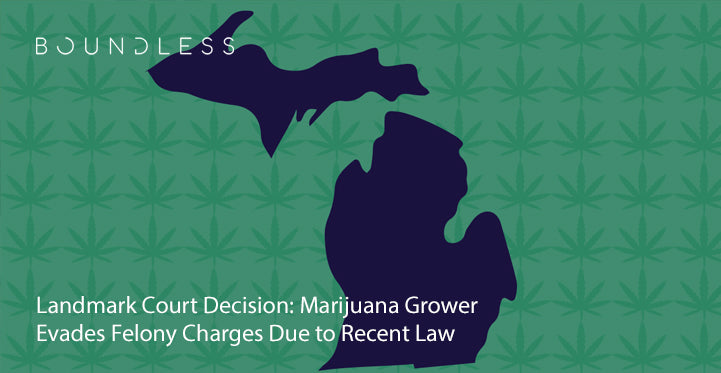Introduction:
In recent years, the landscape of marijuana legalization in the United States has undergone significant changes. With a growing shift in public opinion and a wave of state-level actions, the country has seen a rapid expansion of legal recreational and medical marijuana use. This article provides a comprehensive overview of the current status of marijuana legalization in the United States, including details about the states where it is legal, the federal stance, and public sentiments on the issue.
Marijuana Legalization in the United States:
Twenty-three states, along with Washington, D.C., and Guam, have taken steps to legalize recreational marijuana. This movement began in 2012 when Colorado and Washington became the first two states to approve ballot measures allowing the recreational use and sale of cannabis. Over the next decade, an additional twenty-two states, along with Washington, D.C., and Guam, followed suit in response to the increasing public support for legalization, despite marijuana remaining illegal at the federal level.
Key Points on Marijuana Legalization:
The Psychoactive Compound: Marijuana, often referred to as weed, contains a psychoactive compound called THC, which induces a "high" when consumed.
Evolving Political Landscape: Marijuana legalization has gained significant support among Democratic politicians and some Republicans. State legislatures are actively deliberating the how and when of legalization.
Federal Decriminalization Efforts: Various marijuana-related bills, including federal decriminalization initiatives, have been introduced in Congress. In 2022, the House passed a marijuana decriminalization bill, and senators introduced the Cannabis Administration and Opportunity Act, though it has not advanced.
President's Pardons: In October 2022, President Joe Biden announced plans to pardon individuals convicted of simple marijuana possession at the federal level and encouraged state governors to consider similar actions. Notably, this initiative applies to about 6,500 Americans, none of whom are currently incarcerated for simple possession of marijuana.
Differing Perspectives: Opponents of marijuana legalization argue that it poses public health and safety risks and hold moral objections. Proponents contend that it is less harmful than alcohol and point to its therapeutic benefits, including stress and pain relief.
Social Justice and Economic Benefits: Advocates see marijuana legalization as a means of generating revenue for states and addressing social justice issues. Laws criminalizing marijuana have disproportionately affected minority communities, contributing to mass incarceration. Legal states are often implementing provisions for expungement of low-level marijuana convictions.
States Where Recreational Marijuana Is Legal:
As of the publication date, recreational marijuana is legal in the following states and territories:
Colorado
Washington
Alaska
Oregon
Washington, D.C.
California
Maine
Massachusetts
Nevada
Michigan
Vermont
Guam
Illinois
Arizona
Montana
New Jersey
New York
Virginia
New Mexico
Connecticut
Rhode Island
Maryland
Missouri
Delaware
Minnesota
Recent Developments:
Retail marijuana sales commenced in Vermont in October 2022 and in New York in December of the same year. Despite being legal, Washington, D.C. does not have a regulated recreational market, relying instead on gifting services. Guam's retail industry is gradually taking shape.
Future Legalization Efforts:
Ohio will consider a ballot measure in November 2023 to legalize recreational adult marijuana use, while Oklahoma failed to garner enough votes for a similar measure in March 2023.
State Regulations:
States have their own licensing processes for dispensaries, and businesses selling marijuana must obtain state licenses. Sales are regulated and taxed by the states at varying rates, including excise taxes on marijuana sales.
Decriminalization:
A study published in December 2022 by the American Medical Association found that complete legalization reduces marijuana-related arrests, even in states that had already decriminalized cannabis, where possessing small amounts remains illegal but non-prosecutable.
Federal Legal Status:
At the federal level, marijuana is classified as a Schedule I drug, meaning it is considered to have no medical use and a high potential for abuse. Growing, distributing, and possessing marijuana violate federal drug laws. However, President Biden's October 2022 proclamation initiated a review process to potentially change its scheduling.
The Cole Memorandum:
The Cole Memorandum, issued in 2013, outlined the federal government's non-interference stance in states with marijuana legalization. Though rescinded by then-Attorney General Jeff Sessions in 2018, the federal government has generally refrained from challenging state legalization laws or pursuing cases against individuals complying with state laws.
Decriminalization:
Decriminalization involves reducing penalties for certain criminal acts or reclassifying them as civil offenses. As of September 2023, 31 states and the District of Columbia have decriminalized low-level marijuana possession offenses, usually eliminating jail time for first-time offenses. However, fines and criminal records remain possibilities in some cases.
Public Opinion:
Public support for marijuana legalization has seen significant growth, with a CBS News/YouGov poll in April 2022 revealing that two-thirds of Americans support federal and state-level legalization. The shift in public opinion has been considerable, with only 12% of U.S. adults supporting legalization in 1969, rising to a record high of 68% in 2021.
Conclusion:
The landscape of marijuana legalization in the United States continues to evolve, reflecting changing public sentiments and political initiatives at both state and federal levels. While challenges and disparities persist, marijuana legalization has made significant strides in recent years, with a majority of Americans in support of reform. The future of marijuana legalization in the United States remains a topic of ongoing debate and policy evolution.
In recent years, the landscape of marijuana legalization in the United States has undergone significant changes. With a growing shift in public opinion and a wave of state-level actions, the country has seen a rapid expansion of legal recreational and medical marijuana use. This article provides a comprehensive overview of the current status of marijuana legalization in the United States, including details about the states where it is legal, the federal stance, and public sentiments on the issue.
Marijuana Legalization in the United States:
Twenty-three states, along with Washington, D.C., and Guam, have taken steps to legalize recreational marijuana. This movement began in 2012 when Colorado and Washington became the first two states to approve ballot measures allowing the recreational use and sale of cannabis. Over the next decade, an additional twenty-two states, along with Washington, D.C., and Guam, followed suit in response to the increasing public support for legalization, despite marijuana remaining illegal at the federal level.
Key Points on Marijuana Legalization:
The Psychoactive Compound: Marijuana, often referred to as weed, contains a psychoactive compound called THC, which induces a "high" when consumed.
Evolving Political Landscape: Marijuana legalization has gained significant support among Democratic politicians and some Republicans. State legislatures are actively deliberating the how and when of legalization.
Federal Decriminalization Efforts: Various marijuana-related bills, including federal decriminalization initiatives, have been introduced in Congress. In 2022, the House passed a marijuana decriminalization bill, and senators introduced the Cannabis Administration and Opportunity Act, though it has not advanced.
President's Pardons: In October 2022, President Joe Biden announced plans to pardon individuals convicted of simple marijuana possession at the federal level and encouraged state governors to consider similar actions. Notably, this initiative applies to about 6,500 Americans, none of whom are currently incarcerated for simple possession of marijuana.
Differing Perspectives: Opponents of marijuana legalization argue that it poses public health and safety risks and hold moral objections. Proponents contend that it is less harmful than alcohol and point to its therapeutic benefits, including stress and pain relief.
Social Justice and Economic Benefits: Advocates see marijuana legalization as a means of generating revenue for states and addressing social justice issues. Laws criminalizing marijuana have disproportionately affected minority communities, contributing to mass incarceration. Legal states are often implementing provisions for expungement of low-level marijuana convictions.
States Where Recreational Marijuana Is Legal:
As of the publication date, recreational marijuana is legal in the following states and territories:
Colorado
Washington
Alaska
Oregon
Washington, D.C.
California
Maine
Massachusetts
Nevada
Michigan
Vermont
Guam
Illinois
Arizona
Montana
New Jersey
New York
Virginia
New Mexico
Connecticut
Rhode Island
Maryland
Missouri
Delaware
Minnesota
Recent Developments:
Retail marijuana sales commenced in Vermont in October 2022 and in New York in December of the same year. Despite being legal, Washington, D.C. does not have a regulated recreational market, relying instead on gifting services. Guam's retail industry is gradually taking shape.
Future Legalization Efforts:
Ohio will consider a ballot measure in November 2023 to legalize recreational adult marijuana use, while Oklahoma failed to garner enough votes for a similar measure in March 2023.
State Regulations:
States have their own licensing processes for dispensaries, and businesses selling marijuana must obtain state licenses. Sales are regulated and taxed by the states at varying rates, including excise taxes on marijuana sales.
Decriminalization:
A study published in December 2022 by the American Medical Association found that complete legalization reduces marijuana-related arrests, even in states that had already decriminalized cannabis, where possessing small amounts remains illegal but non-prosecutable.
Federal Legal Status:
At the federal level, marijuana is classified as a Schedule I drug, meaning it is considered to have no medical use and a high potential for abuse. Growing, distributing, and possessing marijuana violate federal drug laws. However, President Biden's October 2022 proclamation initiated a review process to potentially change its scheduling.
The Cole Memorandum:
The Cole Memorandum, issued in 2013, outlined the federal government's non-interference stance in states with marijuana legalization. Though rescinded by then-Attorney General Jeff Sessions in 2018, the federal government has generally refrained from challenging state legalization laws or pursuing cases against individuals complying with state laws.
Decriminalization:
Decriminalization involves reducing penalties for certain criminal acts or reclassifying them as civil offenses. As of September 2023, 31 states and the District of Columbia have decriminalized low-level marijuana possession offenses, usually eliminating jail time for first-time offenses. However, fines and criminal records remain possibilities in some cases.
Public Opinion:
Public support for marijuana legalization has seen significant growth, with a CBS News/YouGov poll in April 2022 revealing that two-thirds of Americans support federal and state-level legalization. The shift in public opinion has been considerable, with only 12% of U.S. adults supporting legalization in 1969, rising to a record high of 68% in 2021.
Conclusion:
The landscape of marijuana legalization in the United States continues to evolve, reflecting changing public sentiments and political initiatives at both state and federal levels. While challenges and disparities persist, marijuana legalization has made significant strides in recent years, with a majority of Americans in support of reform. The future of marijuana legalization in the United States remains a topic of ongoing debate and policy evolution.



Laat een reactie achter
Deze site wordt beschermd door hCaptcha en het privacybeleid en de servicevoorwaarden van hCaptcha zijn van toepassing.